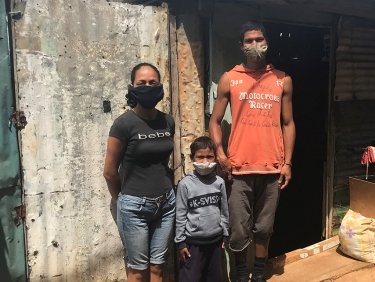In four states in the country (Miranda, Capital District, Lara, and Apure), HEKS/EPER is providing food (either directly through soup kitchens or delivering monthly food kits to families, in particular women-led households, and the elderly) and hygiene kits to extreme hardship cases amongst the most vulnerable crisis-affected.
Supporting a declining health system, and the communities surrounding them
From tiny health centers in remote villages to referral hospitals, the health system in Venezuela is declining, unable to assist the population, due to lack of resources. HEKS/EPER has assessed and works in 18 health centers in Apure State, with interventions tailored to the specific uncovered needs of each center and delineated in collaboration with health workers and authorities. HEKS’ work includes the renovation of basic water infrastructure, the provision of solutions for waste management, installation of photovoltaic power systems and impermeabilization of roofs. Through all of these tasks, HEKS reinforces the capacities of health and maintenance staff and works together with the local staff to solve complex problems with simple and sustainable solutions.
As a result, more than 250 000 people in Apure State have improved their access to health services. As a complement to the work in the health structures, HEKS/EPER collaborates directly with the communities surrounding them. Provision of clean water, promotion of health practices and information on Gender-based Violence (GBV) are pillars of our work, made sustainable by the configuration and promotion of local committees.
